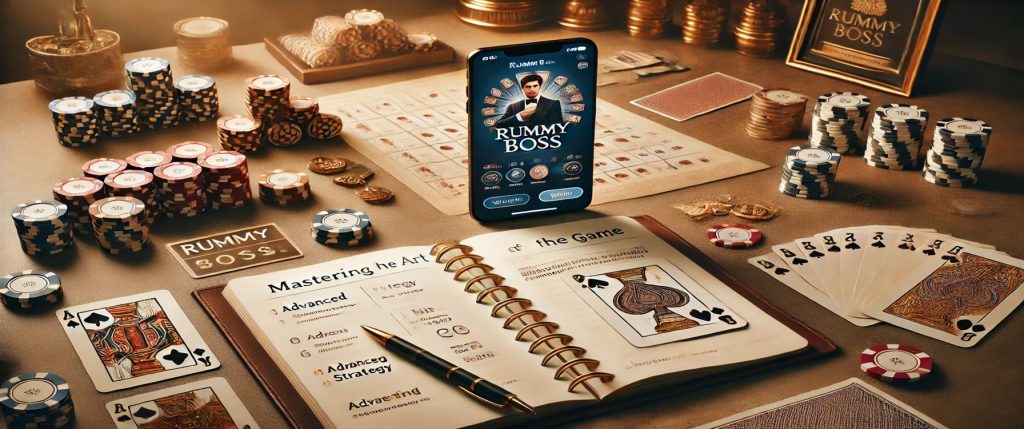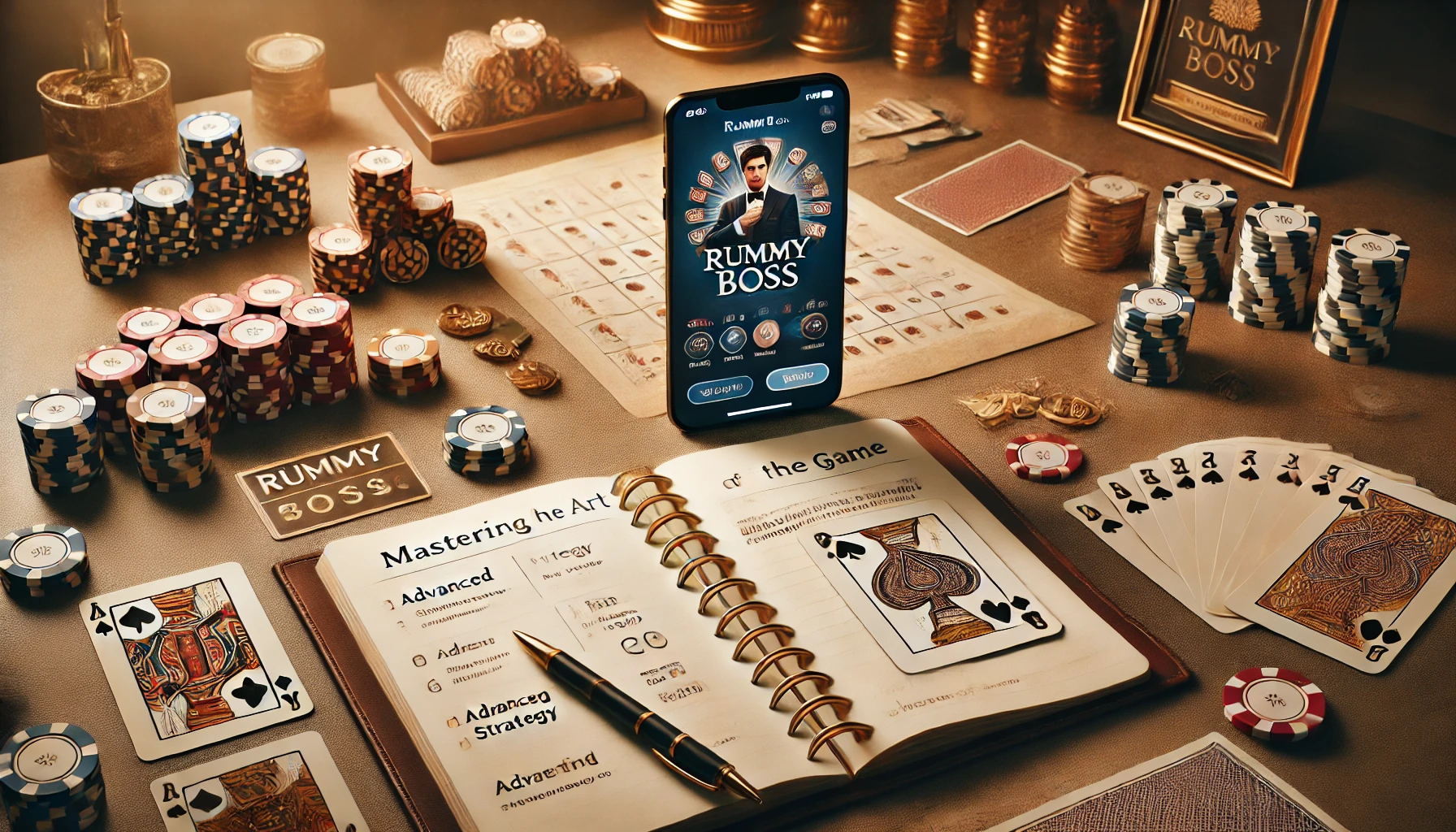Rummy Boss: Mastering the Art of the Game

The Complete Guide to Rummy: Methods, Strategies, and Perspectives Rummy is a traditional card game that has enthralled players for many years. Because it combines strategy, skill, and a little bit of luck, it is popular with both casual and competitive players. The complexities of Rummy will be examined in this post, along with its rules, tactics, and strategies that can improve your performance. Knowing the ins & outs of Rummy can greatly improve your gameplay, regardless of your level of skill. Fundamentally, Rummy is a card game in which players form sets and runs from a hand of cards.
Being the first player to combine all of your cards into legitimate combinations—which can include runs (three or more consecutive cards of the same suit) or sets (three or four cards of the same rank)—is the goal. The number of cards dealt to each player varies depending on the variation, usually seven or ten. One card is turned face-up to create a discard pile, while the other cards form a draw pile. Before discarding one card from their hand, each player takes a turn drawing from the draw or discard pile. To be successful in Rummy, a player must comprehend the fundamentals.
In addition to monitoring their own card collection, players also need to be aware of what their rivals are gathering. The remaining players then count points according to the cards they still have in their hands after one player successfully melds all of their cards. Although the scoring system may differ, face cards typically have higher values than numbered cards.
Deeper strategic play is made possible by this foundational knowledge. Build Runs to Get Started Fast. Since runs only need three consecutive cards of the same suit, they are comparatively simpler to form. For instance, you can easily meld a 5♠, 6♠, and 7♠.
This will free up space in your hand for other combinations. Adapting and reading opponents. Paying attention to the cards that opponents discard is another crucial component of rummy strategy. This can help you avoid giving them the cards they require and reveal important information about their tactics.
Also, it’s critical to prioritize hand flexibility. Instead of obsessing over particular cards, think about the ways that various combinations can complement one another. remaining flexible and changing course. Keeping a 5♦ can help you form a run, for example, if you have a 3♦ and a 4♦.
It might be worthwhile to think about how that card might work in a different meld or set if you draw a 6♣ instead. This flexibility enables you to change your approach in response to the game’s changing dynamics. An underutilized resource in rummy that can have a big influence on your gameplay is the discard pile. Gamers need to be very aware of which cards are being discarded and at what time.
It could be worthwhile to pick up a card that your opponent discards if you need it for a meld or set, even if doing so means giving up another card in your hand. By denying your opponent vital cards, this strategic move can not only move you closer to victory but also thwart their plans. Also, proper disposal of your own waste is just as crucial.
Take into account what your opponents might require when discarding cards. It can hurt your chances of winning to discard valuable cards or cards that could finish an opponent’s meld. Instead, try to discard cards that are less likely to be helpful to other people while maintaining the flexibility of your own hand. You can limit your opponents’ options while creating opportunities for yourself by using this dual strategy for managing the discard pile.
Observation skills can be just as important in rummy as strategic planning. Through careful observation of your opponents’ moves, including their draws, discards, and reactions, you can learn a great deal about their strategies and hands. A player may intend to form particular melds or sets if, for example, they routinely pick up particular suits or ranks from the discard pile. With this knowledge, you can modify your own approach by obstructing their progress or concentrating on various combinations. Also, knowing your opponents’ psychology can give you an advantage when playing.
When making decisions, players frequently display patterns; some may play conservatively, while others may pursue melds aggressively. You can anticipate their actions and decide when to take chances or play it safe by being aware of these tendencies. This degree of awareness allows you to play the game with more psychological warfare in addition to improving your strategic approach.
Rummy requires both organization and strategic decision-making for effective hand management. Sorting your cards into sets and possible melds as soon as you get them is a helpful tip. Similar cards, like those that might form runs or sets, can be grouped together to help you quickly evaluate your options at each turn.
Making decisions more quickly and avoiding holding onto cards that don’t support your overall plan are made possible by this organization. Also, it’s critical to make informed choices regarding when to draw from the draw pile versus the discard pile. Picking up a card that your opponent has discarded that could finish one of your melds might be worthwhile, even if it means giving up another card in your hand. On the other hand, think about strategically discarding any high-value cards you find yourself holding onto late in the game to reduce the number of points you could lose if another player goes out first.
Your success in rummy can be greatly impacted by how you weigh risk & reward in these choices. Rummy players who are more seasoned frequently look for cutting-edge strategies to outplay their rivals. One such method is “card counting,” which entails monitoring which cards are still in the deck and which have already been played. Players can use this information to predict what cards their opponents might be holding and modify their strategy accordingly.
Making better decisions about when to draw or discard can result from this degree of awareness. Bluffing is another sophisticated strategy, but it needs to be applied carefully and sparingly. Discarding cards that could give opponents the impression that you are aiming for a particular meld or set can trick them into making bad choices because they think you have a certain hand. But only when you are certain that you can read your opponents’ reactions will you use this tactic, which necessitates a thorough understanding of their tendencies.
Luck is an unavoidable element that can affect the result of any game, even though skill and strategy are important in rummy. One player may occasionally benefit more from the first card deal & subsequent deck draws than another, which irritates those who feel at the mercy of chance. Nonetheless, there are strategies to lessen the influence of chance on your gameplay. Focusing on using the information at hand to inform strategic decisions rather than depending entirely on chance is one useful strategy. Also, having a solid grasp of probabilities can assist players in making wiser decisions while playing.
When choosing whether to draw from the deck or take a card out of the discard pile, for example, you can make better decisions if you know which cards are more likely to show up given what has already been played. Players can lessen the impact of luck and improve their chances of success by fusing strategic thinking with a knowledge of probabilities. While commitment and practice are necessary for improving at rummy, players can use a number of tactics to gradually hone their abilities.
Playing frequently against opponents with different skill levels & playing styles is one efficient strategy. In addition to improving their observational abilities, this exposure enables players to modify their tactics and pick up new methods from others. Reading Rummy literature, whether it be books or internet sources, can also give you important insights into sophisticated tactics and methods that might not be immediately obvious when playing casually.
Participating in online rummy forums or communities can also help to promote conversations about strategies and experiences that aid in skill improvement. Players may continuously improve their skills and raise their level of enjoyment of Rummy by actively looking for chances to learn and grow within the game. In summary, learning Rummy requires not only comprehending its goals and rules but also using strategic thinking and close observation while playing. Players can greatly improve their game by concentrating on efficiently creating melds, controlling discards, paying close attention to opponents, & consistently honing skills through study and practice. In card games like Rummy, skillful play can frequently tip the scales in favor of those who are prepared and knowledgeable about the nuances of this age-old game, even though luck will always play a part.
